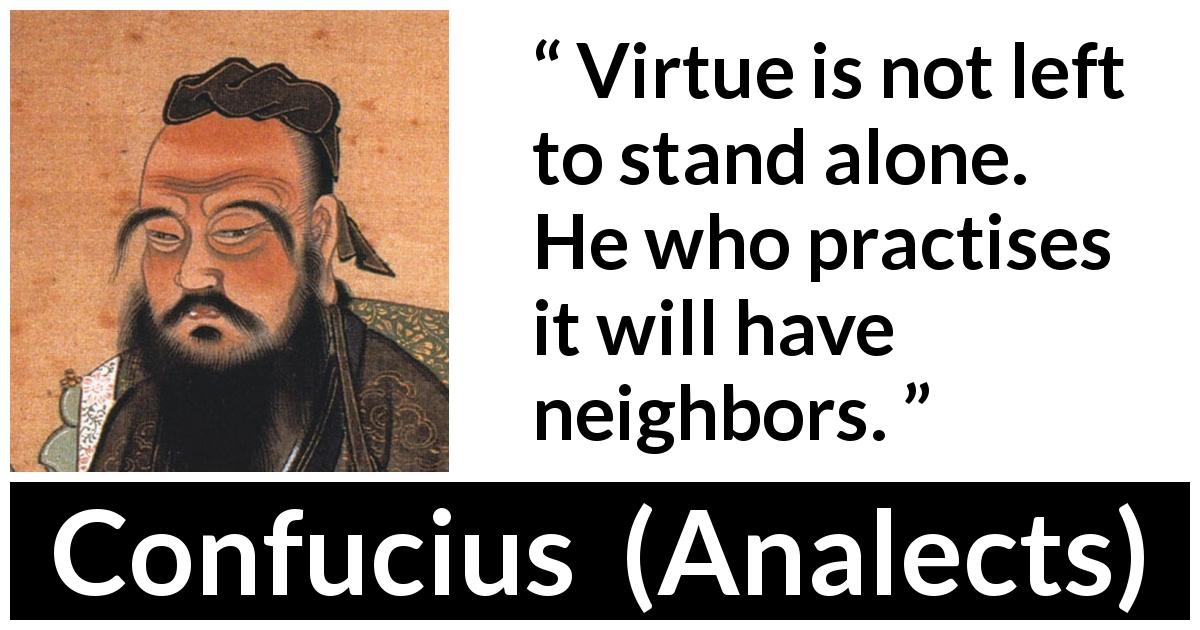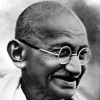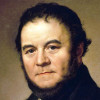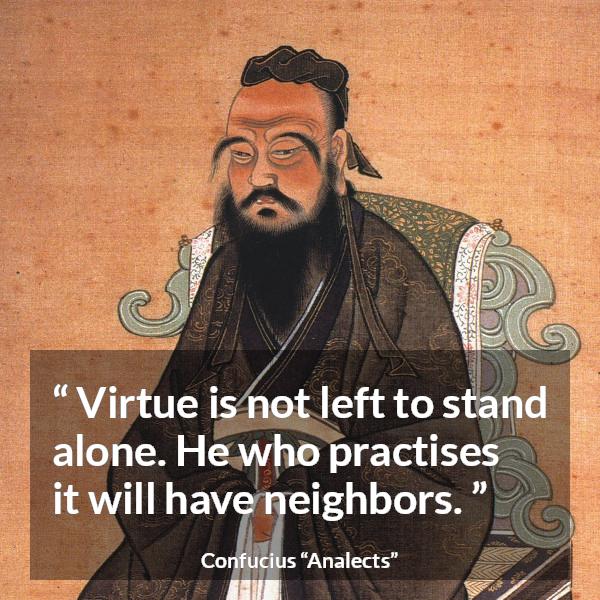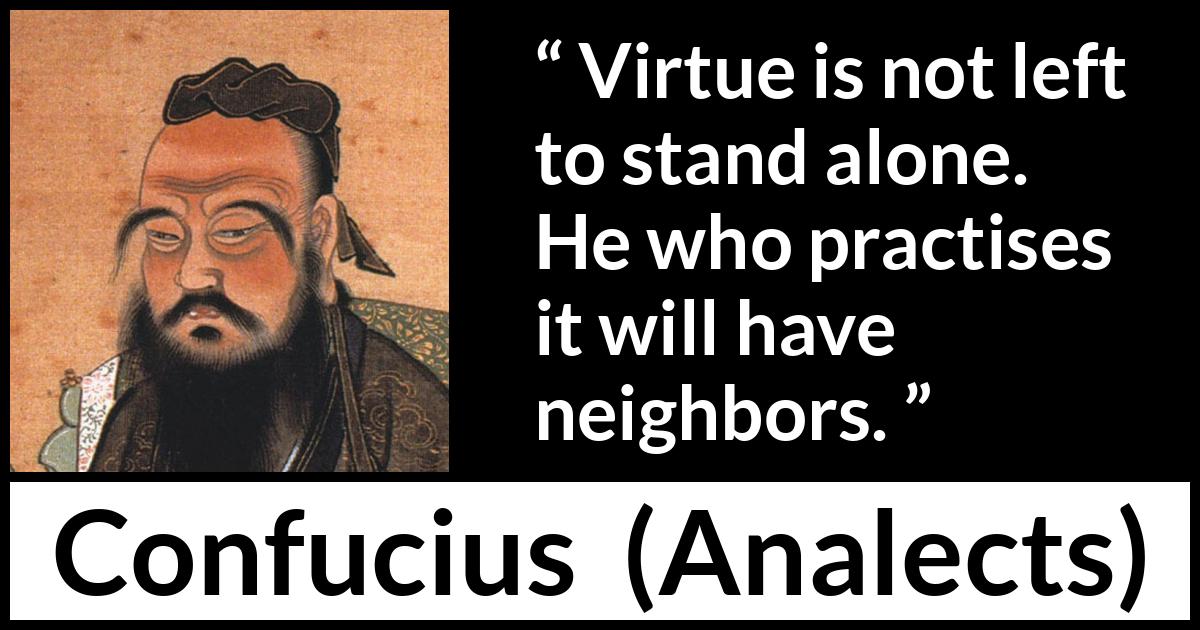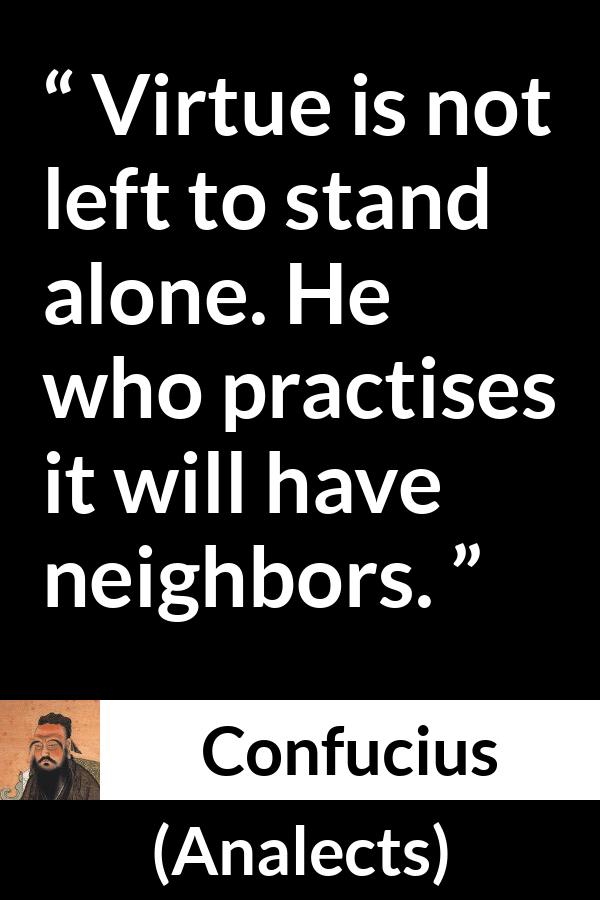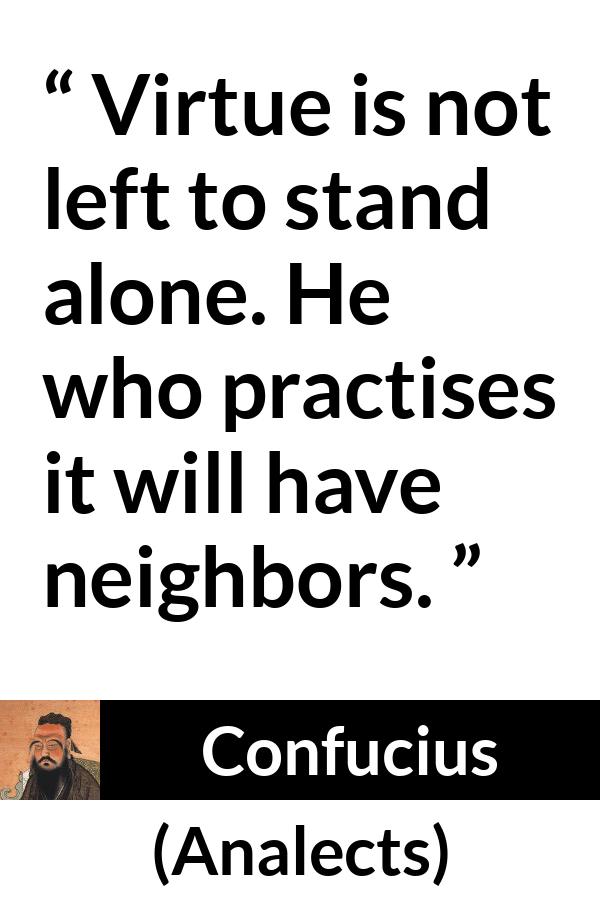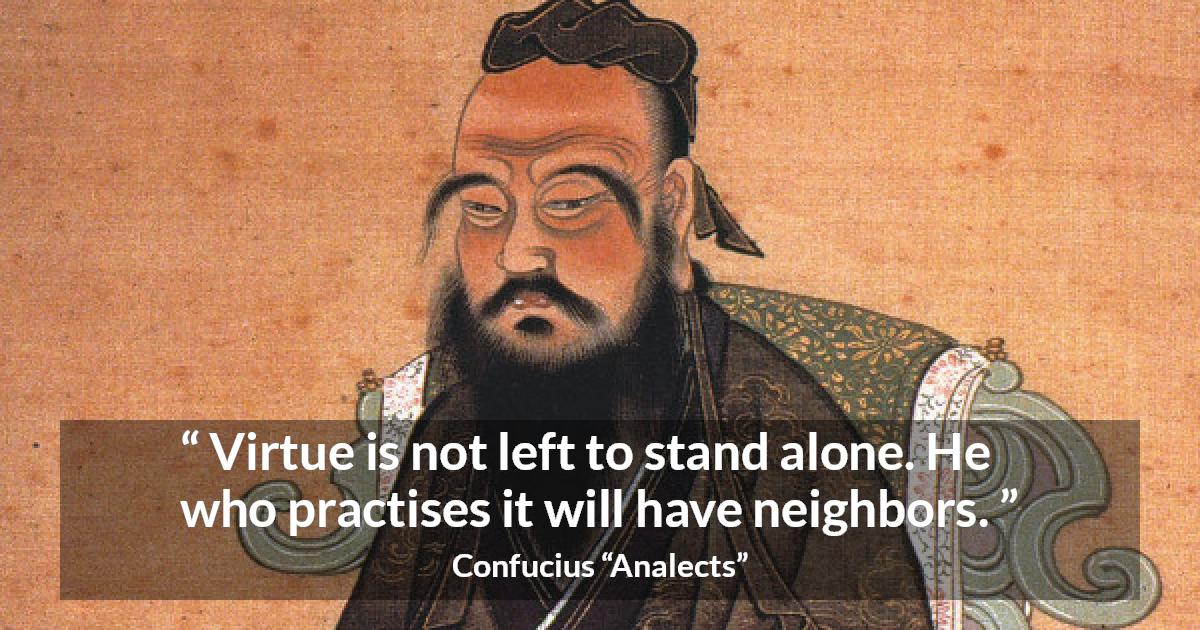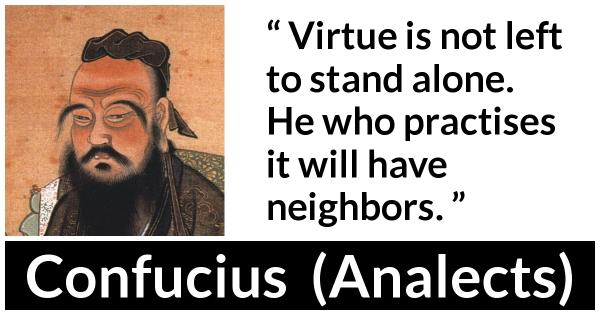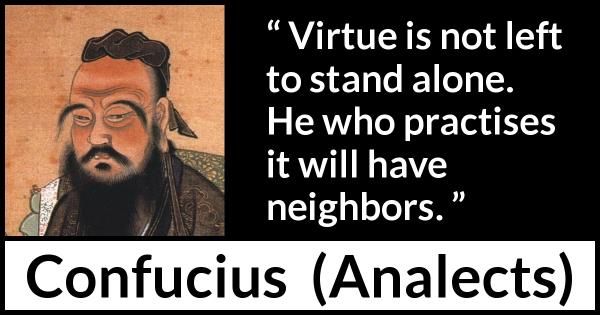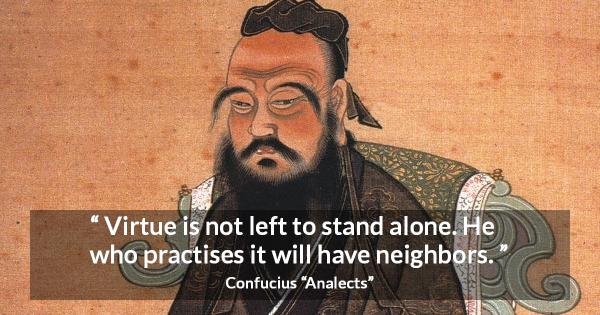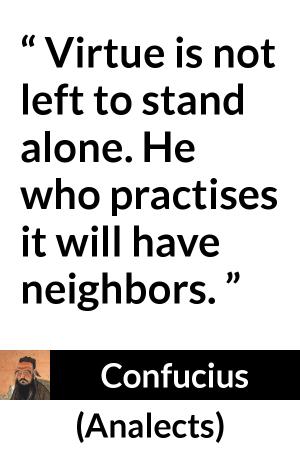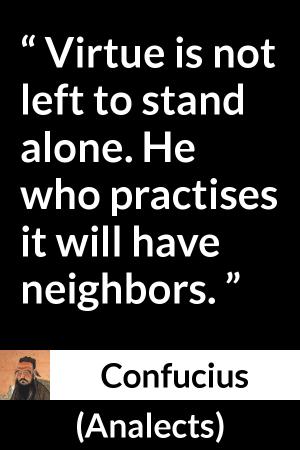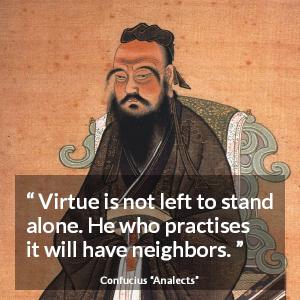“ Virtue is not left to stand alone. He who practises it will have neighbors. ”
Confucius, Analects. copy citation
| Author | Confucius |
|---|---|
| Source | Analects |
| Topic | virtue loneliness |
| Date | |
| Language | English |
| Reference | |
| Note | Translated by James Legge |
| Weblink | http://www.gutenberg.org/cache/epub/3330/pg3330-images.html |
Context
“The Master said, 'The reason why the ancients did not readily give utterance to their words, was that they feared lest their actions should not come up to them.' chap. XXIII. The Master said, 'The cautious seldom err.'
chap. XXIV. The Master said, 'The superior man wishes to be slow in his speech and earnest in his conduct.' chap. xxv. The Master said, 'Virtue is not left to stand alone. He who practises it will have neighbors.' chap. XXVI. Tsze-yu said, 'In serving a prince, frequent remonstrances lead to disgrace. Between friends, frequent reproofs make the friendship distant.'
BOOK V. KUNG-YE CH'ANG.
chap. I. 1. The Master said of Kung-ye Ch'ang that he might” source
chap. XXIV. The Master said, 'The superior man wishes to be slow in his speech and earnest in his conduct.' chap. xxv. The Master said, 'Virtue is not left to stand alone. He who practises it will have neighbors.' chap. XXVI. Tsze-yu said, 'In serving a prince, frequent remonstrances lead to disgrace. Between friends, frequent reproofs make the friendship distant.'
BOOK V. KUNG-YE CH'ANG.
chap. I. 1. The Master said of Kung-ye Ch'ang that he might” source
